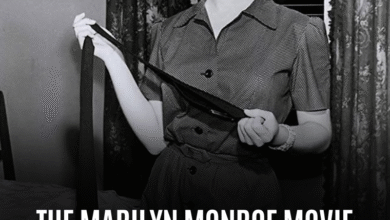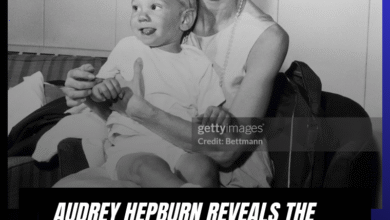Denzel Washington Reveals the Movie That Gave Him Hope for Cinema’s Future
OPINION: This article may contain commentary which reflects the author's opinion.
In a career that spans decades, Denzel Washington has been a powerful advocate for diversity and representation in Hollywood. Over the years, Washington has broken barriers and challenged the industry’s long-standing racial disparities, pushing for a more inclusive and authentic portrayal of Black actors and stories on screen. However, one moment in particular stands out for Washington as a turning point in cinema’s ongoing journey towards equality: the release of Black Panther in 2018.
Directed by Ryan Coogler, Black Panther became a landmark film not only for its compelling narrative and groundbreaking visual effects but also for its powerful representation of Black culture and leadership. Starring the late Chadwick Boseman as King T’Challa, alongside a stellar cast including Michael B. Jordan, Lupita Nyong’o, and Danai Gurira, the film showcased a cast of predominantly Black actors in leading roles, shattering the conventional limits placed on Black performers in Hollywood.
For Washington, watching Black Panther for the first time was an emotional experience, one that symbolized the culmination of years of hard work and advocacy for greater representation in cinema. “I cried a little bit when I saw Black Panther,” Washington shared, reflecting on the significance of the film. “I was on Broadway [in The Iceman Cometh], in fact, and I went to the premiere, and I wasn’t interested in the red carpet and all that. So I went backstage and I saw Chad [Boseman] and Ryan [Coogler]. I spoke to them and then I sat down and watched the movie.”
As he watched the film unfold on the screen, Washington felt an overwhelming sense of pride and relief. “I felt like the baton had been passed,” he said. “I was like, ‘Wow, these young boys are gone,’ you know. I felt, I don’t know if the word is ‘relieved,’ but I was proud to see what they had done and seeing where they were headed.”
Washington, who has long advocated for more diverse and substantial roles for Black actors, described his feelings at the premiere as a quiet acknowledgment that the industry was finally beginning to shift. He admitted that, at that moment, he didn’t anticipate the massive success Black Panther would achieve—ultimately grossing over a billion dollars globally—but he was deeply moved by the significance of what the film represented for future generations of filmmakers and actors.
“Seeing what they had done, and knowing where they were going… that was a special moment for me,” Washington continued.
The success of Black Panther marked a cultural milestone in cinema, not just for its financial success, but for its lasting impact on representation. The film’s influence continues to resonate within the industry, opening doors for more diverse stories and talent to take center stage. It was a moment of empowerment for Black actors, directors, and audiences, and for Washington, it was a validation of the hard-fought progress he and many others had championed for years.
Washington’s journey in Hollywood has always been marked by a deep desire to break stereotypes and push against the barriers that have long limited opportunities for Black artists. From his early roles to his Oscar-winning performances, he has continually challenged the industry to embrace a broader, more inclusive view of talent and storytelling. With Black Panther, Washington saw not only a personal victory but a collective one for the next generation of filmmakers who are now shaping the future of cinema.
As Hollywood continues to evolve, Washington’s reflections on Black Panther serve as a powerful reminder of the importance of representation and the need for continued progress. In passing the baton to a new generation, Black Panther has not only reshaped the landscape of Hollywood but has set a new standard for what is possible when diverse voices are given the platform to tell their stories.



